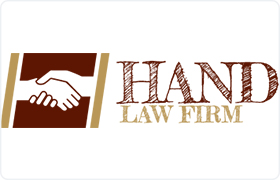 Salem Misdemeanor Lawyers, Alabama
Salem Misdemeanor Lawyers, Alabama
Sponsored Law Firm
-
 x
x

Click For More Info:
-
Hand & Associates, LLC
114 N 8th St Opelika, AL 36801» view mapAccident & Injury, Family, Business, Wills, Criminal Accomplished · Determined · Experienced
Our approachable attorneys immediately put you at ease about your legal problem. We are focused on making a brighter future for you.
334-741-4077
Not enough matches for Salem Misdemeanor lawyer.
Below are all Salem Criminal lawyers.
Sponsored Lawyers
1-4 of 4 matches
Criminal, Divorce & Family Law, Accident & Injury, Business, Wills & Probate
Ben Hand is the founding partner of Hand Law Firm, LLC. as well as a partner in Hand & Hand Mediation, LLC. Ben was admitted to the Bar in Alabama in 1990 after earning his Juris Doctor from Cumberland School of Law at Samford University. Ben completed his undergraduate degree in Business Administration from Auburn University in 1987b and has remained an avid Auburn fan. Ben was born in Valley, Alabama and traveled as a child to Nicaragua, Guatemala, and Mexico with his parents who worked as missionaries and teachers. It was during his childhood travels that he learned to love the Central American culture and learned to speak fluent Spanish. After high school, Ben returned to Auburn and has remained a citizen of Lee County for the past thirty-five years. In 1990, Ben founded Hand Law Firm, LLC. He has been practicing for over twenty-five years. Ben focuses his practice on criminal defense, civil litigation, social security, family law, and probate law. In addition to his duties at Hand Law Firm, Ben is also a state registered mediator and has served as a Municipal Judge for over twenty years. Ben has served the cities of Roanoake, Wedowee, Camp Hill and Opelika during his tenure as Municipal Judge and Prosecutor and thus has a unique perspective in criminal defense. Ben lives in Opelika with his wife, Elizabeth Hand and together they are raising their ten children.
(more)


 Benny Hand Opelika, AL
Benny Hand Opelika, AL Practice AreasExpertise
Practice AreasExpertise

